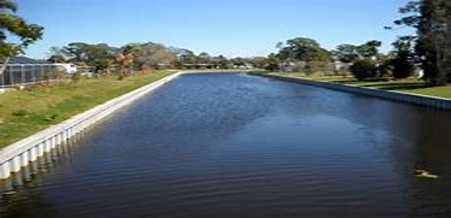By Capt. Chris Nezianya
Nigeria is blessed with many rivers, most of which are navigable. The two major rivers are Rivers Niger and Benue. They provide livelihood for the communities close to the rivers and channels of communication right across the country.
The River Niger stretches from Kebbi in the North West, through Kwara State in the West to the confluence town of Lokoja (Kogi State).
The River Benue stretches from Adamawa in the North East through Benue State to Lokoja and southward to Onitsha (Anambra State) and down to Yenagoa (Bayelsa State) in the Niger Delta.
To fully appreciate and benefit from these natural highways will require a significant change of attitude in the management and maintenance of our inland waterways.
These measures will include:
Dredging of the channels and strengthening of the river banks to maintain the navigable channel
Marking the channels with navigational buoys to ensure safety of vessels and reduce the incidence of wrecks
Use of standard position fixing systems (Decca Chain, Radar, GPS) to enhance safety of navigation
A well-developed and maintained inland waterways will greatly enhance Intermodal transport and further
Ease seaport congestion by enabling transshipment of goods on towed or self-propelled barges through the channels and creeks to inland ports like the recently commissioned Onitsha Port in Anambra State.
Enable the effective development of other Inland Ports and reduce the congestion and load on our major roads
Increase employment in training of personnel, pilotage and river maintenance, stevedoring and inland port activities/customs/commerce/warehousing
Increase ship-building/ship-repairs, ship acquisition to include Ferries/Ro-Ro/tugs/ as well as leisure crafts.
Nigeria is a coastal State that is equally well endowed with navigable rivers right throughout the country.
From the Kaduna River in the north, River Oshun in the West, the River Ethiope in Edo and Delta States to the Oji River in Anambra State, the Imo River in the south and the inter-connected Rivers and creeks in the Niger Delta (Rivers, Bayelsa, Cross Rivers and Akwa Ibom States), a proper inland navigational passage is possible with a little bit of hydrological engineering work.
Another significant benefit to be derived from a properly maintained inland waterways is the reduction in the severe effects of flooding.
Poor management and maintenance of our drainage basins and flood plains contribute adversely to our management of floods.
Conclusion
Our waterways are natural highways which when developed will greatly contribute to the GDP from the maritime sector. Employment will be significantly increased in the sector with the added benefit of increased revenue through tax.
Maritime training institutions will also benefit as cadets and other trainees will find gainful employment on Nigerian registered ships and avoid the present very expensive overseas training after which they are effectively redundant as foreign ships are reluctant to employ them and give them the chance to gain the required sea-time to progress in the unique maritime profession.
The added opportunities for a truly intermodal transport system and transshipment of cargo from the seaports through the river channels to the inland ports is of great benefit to the shipper as the goods are delivered close to the markets.
In addition, the damage to the roads from heavy and overloaded container carrying trucks would be drastically reduced.
The time to harness the potential and indeed the massive advantages of our natural waterways is now.
C.N. Nezianya B.Sc.(Hons), M.Sc. PGCE.

